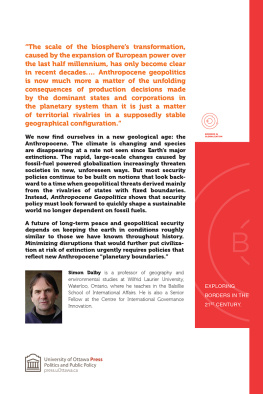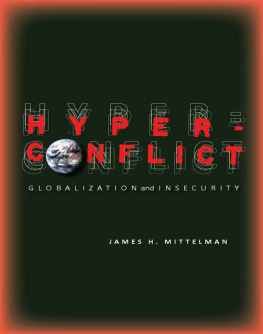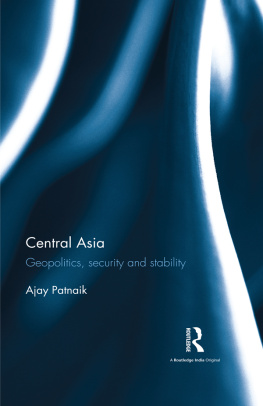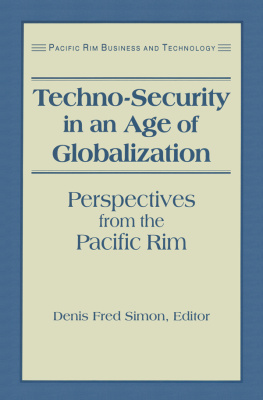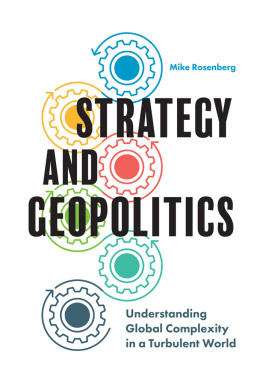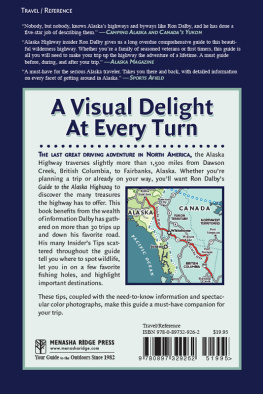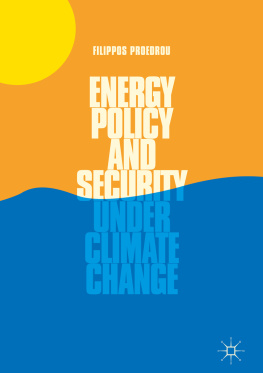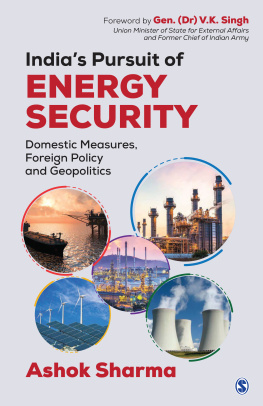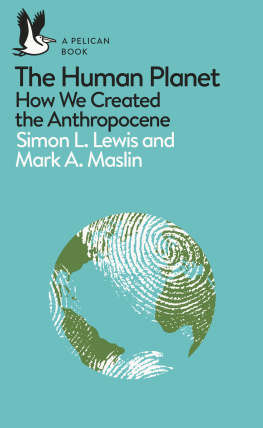Simon Dalby - Anthropocene Geopolitics: Globalization, Security, Sustainability
Here you can read online Simon Dalby - Anthropocene Geopolitics: Globalization, Security, Sustainability full text of the book (entire story) in english for free. Download pdf and epub, get meaning, cover and reviews about this ebook. year: 2020, publisher: University of Ottawa Press, genre: Politics. Description of the work, (preface) as well as reviews are available. Best literature library LitArk.com created for fans of good reading and offers a wide selection of genres:
Romance novel
Science fiction
Adventure
Detective
Science
History
Home and family
Prose
Art
Politics
Computer
Non-fiction
Religion
Business
Children
Humor
Choose a favorite category and find really read worthwhile books. Enjoy immersion in the world of imagination, feel the emotions of the characters or learn something new for yourself, make an fascinating discovery.
- Book:Anthropocene Geopolitics: Globalization, Security, Sustainability
- Author:
- Publisher:University of Ottawa Press
- Genre:
- Year:2020
- Rating:4 / 5
- Favourites:Add to favourites
- Your mark:
- 80
- 1
- 2
- 3
- 4
- 5
Anthropocene Geopolitics: Globalization, Security, Sustainability: summary, description and annotation
We offer to read an annotation, description, summary or preface (depends on what the author of the book "Anthropocene Geopolitics: Globalization, Security, Sustainability" wrote himself). If you haven't found the necessary information about the book — write in the comments, we will try to find it.
Simon Dalby: author's other books
Who wrote Anthropocene Geopolitics: Globalization, Security, Sustainability? Find out the surname, the name of the author of the book and a list of all author's works by series.
Anthropocene Geopolitics: Globalization, Security, Sustainability — read online for free the complete book (whole text) full work
Below is the text of the book, divided by pages. System saving the place of the last page read, allows you to conveniently read the book "Anthropocene Geopolitics: Globalization, Security, Sustainability" online for free, without having to search again every time where you left off. Put a bookmark, and you can go to the page where you finished reading at any time.
Font size:
Interval:
Bookmark:


The University of Ottawa Press (UOP) is proud to be the oldest of the francophone university presses in Canada and the oldest bilingual university publisher in North America. Since 1936, UOP has been enriching intellectual and cultural discourse by producing peer-reviewed and award-winning books in the humanities and social sciences, in French or in English.
Library and Archives Canada Cataloguing in Publication
Title: Anthropocene geopolitics : globalization, security, sustainability / Simon Dalby, Balsillie School of International Affairs, Wilfrid Laurier University.
Names: Dalby, Simon, author.
Series: Politics and public policy (University of Ottawa Press)
Description: Series statement: Politics and public policy | Includes bibliographical references and index.
Identifiers: Canadiana (print) 20190238933 | Canadiana (ebook) 2019023895X | ISBN 9780776628899 (softcover) | ISBN 9780776628882 (hardcover) | ISBN 9780776631172 (PDF) | ISBN 9780776631189 (EPUB) | ISBN 9780776631196 (Kindle)
Subjects: LCSH: Geopolitics. | LCSH: Boundaries. | LCSH: Globalization. | LCSH: Sustainability.
Classification: LCC JC319 .D35 2020 | DDC 320.1/2dc23
Legal Deposit: First Quarter 2020
Library and Archives Canada
University of Ottawa Press 2020
Printed and bound in Canada
Copy editing | Robert Ferguson |
The University of Ottawa Press gratefully acknowledges the support extended to its publishing list by the Government of Canada, the Canada Council for the Arts, the Ontario Arts Council, and the Federation for the Humanities and Social Sciences through the Awards to Scholarly Publications Program, and by the University of Ottawa.

In memory of Neil Smith,
geographer, activist, scholar, friend, and inspiration
T he dedication for this book is to the memory of Neil Smith, a geographer, activist, and scholar whose critiques of the ideology of nature in the 1980s first peaked my intellectual curiosity on the themes that, three decades later, appear throughout this volume. I wish he had lived so that we could have had further discussions of all these themes, but nonetheless here, very belatedly, is acknowledgement of my intellectual debt.
In working out the arguments in this book I have benefited greatly from the Borders in Globalization partnership grant funded by the Canadian Social Sciences and Humanities Research Council (grant number 895-2012-1022). My thanks to Emmanuel Brunet-Jailly, the director of the program; Victor Konrad, the associate director; and Nicole Bates-Eamer, the ever efficient administrator who coordinated our various diverse investigations of contemporary bordering practices.
The Research Council has provided support to fund graduate student assistants who have helped in assembling the material that has gone into this volume. Thanks in particular to Alex Szaflarska, Derek Orocz, Masaya Llavaneras-Blanco, Clay DaSilva, Rupinder Mangat, and Alex Suen, graduate students at Wilfrid Laurier, and at the University of Waterloo for much useful research assistance in assiduously tracking down key sources in diverse scholarly literatures and, in Alex Suens case, helping compile the bibliography and index.
I have drawn inspiration and insight from numerous discussions at the Centre for International Governance Innovation and the Balsillie School of International Affairs, and from numerous students who have attended my seminars on climate, security, and environmental governance in recent years. Preliminary versions of many of the arguments in these chapters were presented as papers, seminars, and lectures to audiences in Ottawa, Boston, Greensboro, Oslo, Lund, Tucson, Atlanta, London (Ontario), Exeter, Milton, Toronto, Chicago, Eugene, Kitchener, Victoria, New York, La Paz, Newcastle, College Park, Miami, Linkoping, Los Angeles, Mayne Island, San Diego, and Waterloo. I am indebted to numerous colleagues, audience members, and friends at these events for useful questions and suggestions that have shaped my thinking. My apologies that I cant name you all but neither my memory nor my notes are up to the task of compiling what would be a very long list indeed.
Thanks to Cara Stewart for tracking so many of the themes of this volume in contemporary online media; her continued affection and support for my academic efforts makes all this much easier. The Balsillie School of International Affairs is an unusually conducive intellectual environment to think about matters of global governance and contemporary innovations. I am indebted to my numerous academic colleagues there, and to Tiffany Bradley, Kelly Brown, Andrew Thomson, and Joanne Weston, the people who keep the whole place running so effectively. Thank you one and all.
My thanks, too, to the staff at the University of Ottawa Press for turning my text into a book so efficiently, and also to Edward Burtynsky and his colleagues for permission to use his iconic image of a California oil field as the cover illustration for this volume. His inspiring visual examinations of the Anthropocene have done so much to interrogate the contemporary transformation of the Earth, and I am honoured to use one of his images here.
Much earlier versions of many parts of this volume have appeared in print in diverse places and I thank all the publishers listed here for granting permission to reuse and update the following material: Parts of has been revised from Anthropocene Discourse: Geopolitics after Environment in Stanley Brunn and Roland Kehrein (eds.), Changing World Languages Map, Heidelberg: Springer., 2019.
The fraying thread that connects our past to our future is not limited to the flux in the natural order. The ecological shake-up wrought by climate change is also shaking up our economic and political-order. In the financial realm, as in the natural realm, the past provides fewer and fewer clues to our future. Like the migration patterns of songbirds that no longer correlate to the hatching patterns of their insect prey, or the mountain snow packs that no longer store water for the dry summer months, the economy is facing miscues born of the feedback loop between tumult in the atmosphere and tumult on the earth. Rapid changes in the weather and temperature are outpacing our traditional ideas for assessing risk, redefining the calculus for economic success, shaking up the geopolitical status quo. (Mark Schapiro 2016: xi)
GEOPOLITICS RETURNED?
A larming headlines in recent years suggest violent rivalries are, once again, the order of the day in global politics. Discussions of migrations and boundary walls and fences, military interventions, and the use of nationalist tropes, especially by the Trump administration, have raised the rhetorical temperature in international politics, not least in the much-discussed ChinaU.S. rivalry (Allison 2017). But well before Donald Trumps election, commentators and politicians were focused on rivalries, nationalist priorities, and concerns about migration, in particular in Europe and North America. Walter Russell Mead (2014) was concerned antagonistic politics between at least some great powers suggest a return of geopolitics after a period in which it was apparently absent. If the term is used to refer to territorial disputes, and the use of military force or the threat thereof, then clearly the conflicts over Crimea, Ukraine, Kashmir, Palestine, and Yemen, various islands disputed by China and Japan and by various states in the South China Sea, or Russian and Turkish actions in Syria, suggested geopolitics was indeed back. Opportunistic populist politicians frequently respond to crises with xenophobia and threats of force rather than intelligent policy. Robert Kagan (2015) was worried the weight of geopolitics is now reducing the role of democracy in global governance as authoritarian states flex their political muscles.
Font size:
Interval:
Bookmark:
Similar books «Anthropocene Geopolitics: Globalization, Security, Sustainability»
Look at similar books to Anthropocene Geopolitics: Globalization, Security, Sustainability. We have selected literature similar in name and meaning in the hope of providing readers with more options to find new, interesting, not yet read works.
Discussion, reviews of the book Anthropocene Geopolitics: Globalization, Security, Sustainability and just readers' own opinions. Leave your comments, write what you think about the work, its meaning or the main characters. Specify what exactly you liked and what you didn't like, and why you think so.

